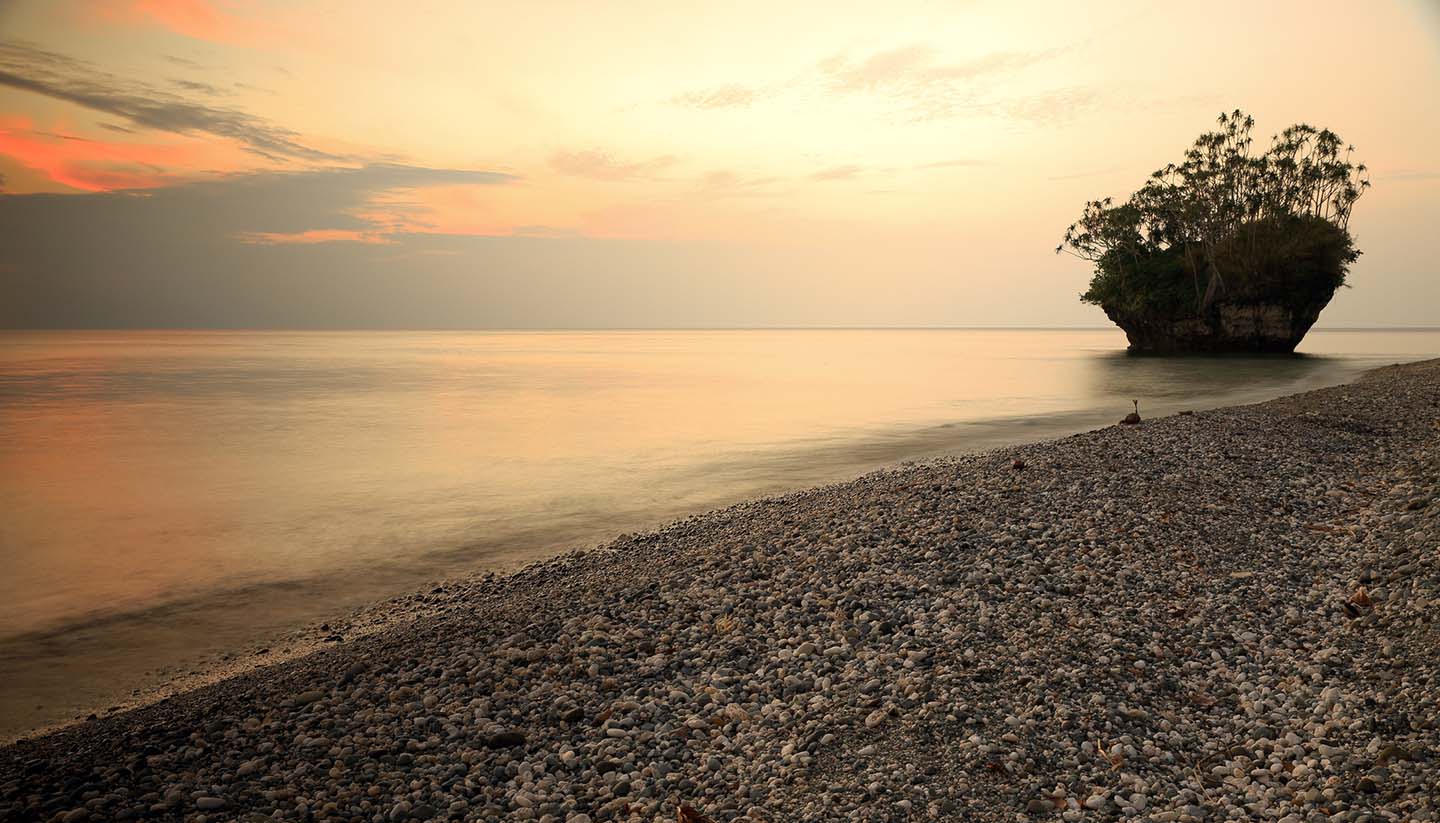Vanuatu History, Language and Culture
History of Vanuatu
Settlement in Vanuatu dates back to around 500BC. For centuries the ni-Vanuatu have recorded their history orally, passing stories from one generation to the next. Sometimes myths and events blur. For example, Roy Mata, the chief for Efate and the Shepherd Islands, died around 1265 and stories were told of his burial that his wives, close relatives and clan leaders chose to be buried alive with him. The stories were so accurate that in 1967 the digs were easy to locate and revealed the stories were true.
European explorers visited the islands in the 17th and 18th centuries from various parts of the globe. In 1774, Cook sailed to Malekula, Erromango, Tanna, Santo and Efate (which he named Sandwich Island). The 19th century saw the indigenous population decimated by atrocities – slaughtered by sandalwood traders, kidnapped as cheap labour for the cane fields and the infected by missionaries who introduced many diseases.
In 1906, it was decided without any consultation with the indigenous people that the New Hebrides would become an Anglo-French Condominium. This caused chaos with French and English currencies, two prisons, two hospitals, 'Bobbies' patrolling one side of the street and gendarmes the other and, for a short time, vehicles drove on both sides of the road.
The early part of the 20th century saw the local people employed on low wages by white plantation owners in conditions not much better than slavery. Later, the planters recruited labour from Malaya, China, Vietnam, Fiji and Tonga, which explains today's multicultural mix.
After World War 2, a complex power struggle began between the indigenous islanders and the dual colonial interests over the future political and economic course of the islands. The constitutional position was settled in 1977, at a conference between British, French and New Hebridean representatives in Paris, and the islands became fully independent in 1980 with the New Hebrides becoming the Republic of Vanuatu.
Under its written constitution Vanuatu elects a President (currently Baldwin Lonsdale) as head of state, but power rests with the Prime Minister (since 2016 Charlot Salwai) who is the elected head of government and appoints a Council of Ministers. As with NiVan society, politics tend to divide along linguistic English and French lines making the formation of coalition governments somewhat troublesome. The country's legal system is based on British common law and French civil law.
Did you know?
• The traditional music of Vanuata is created on percussive instruments, but in the 20th century string band music became popular with its guitars, ukuleles and popular songs.
• The national dish, laplap, is cooked in an underground oven.
• The indigenous flying fox, or fruit bat, lays a vital role in pollinating native trees.
Vanuatu Culture
Religion in Vanuatu
Mostly Christian, the principal religions are Presbyterian (36.7%), Anglican (15%), Roman Catholic (15%), indigenous beliefs (7.6%), Seventh-Day Adventist (6.2%), and Church of Christ (3.8%).
Social Conventions in Vanuatu
Informal wear is suitable for most occasions. Some establishments appreciate men wearing long trousers in the evenings. Life goes at its own pace ('island time') and while modern influences can be seen in the main centres, in some villages on the outer islands, age-old customs continue. Those hiking or exploring must be aware that Vanuatu has strict and sensitive land ownership regulations and permission should be sought before venturing onto private property. Vanuatu is also a tax haven so there is much off-shore investment.
Language in Vanuatu
There are three official languages: English, French and Bislama (Pidgin English). Bislama, a Melanesian mixture of French and English, is the most widely used day-to-day language for the ni-Vanuatu people. Everyone involved in tourism areas speaks English and about 40% also speak French. There are more than 115 local dialects and many ni-Vanuatu people speak four or more languages.

